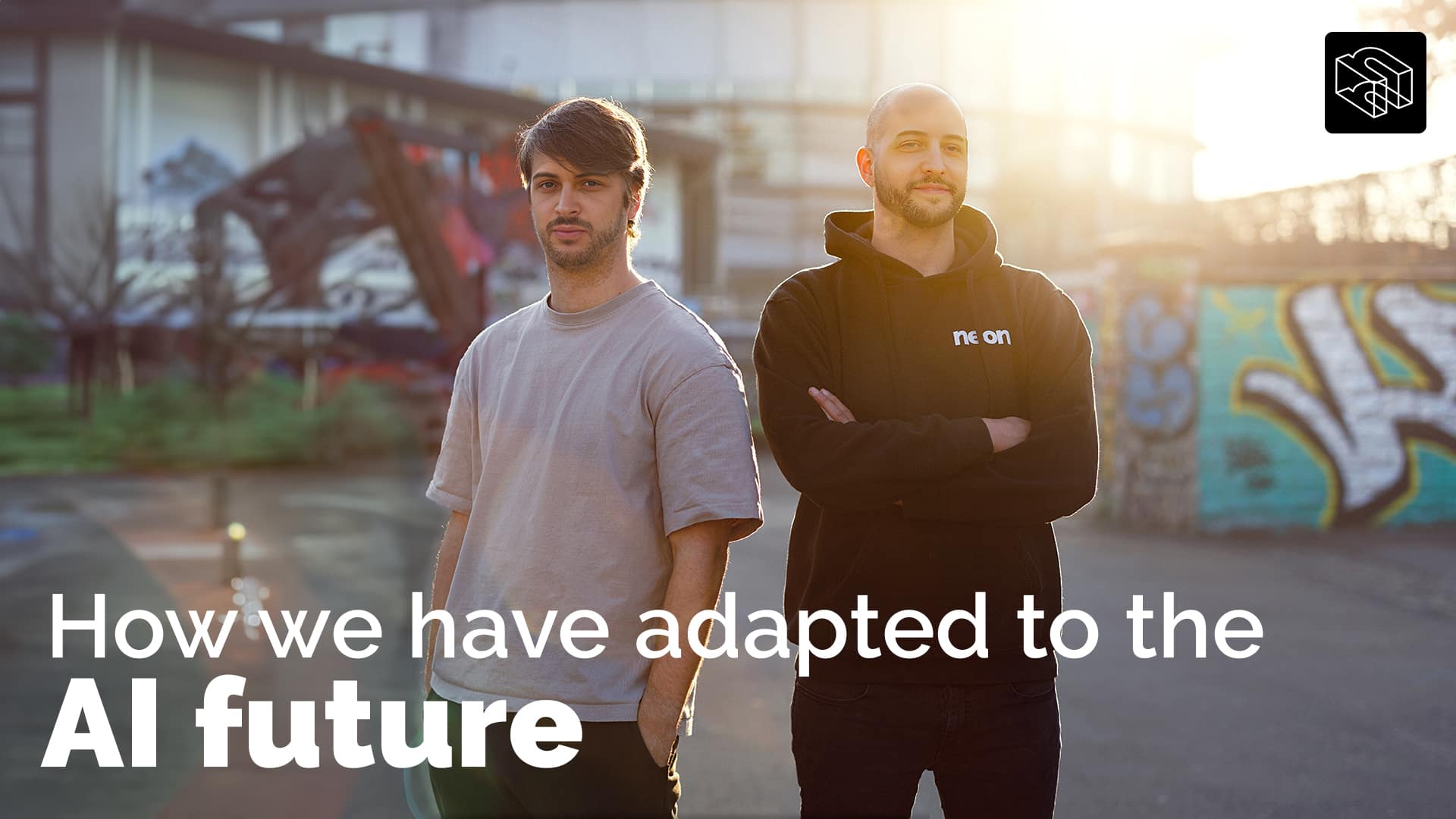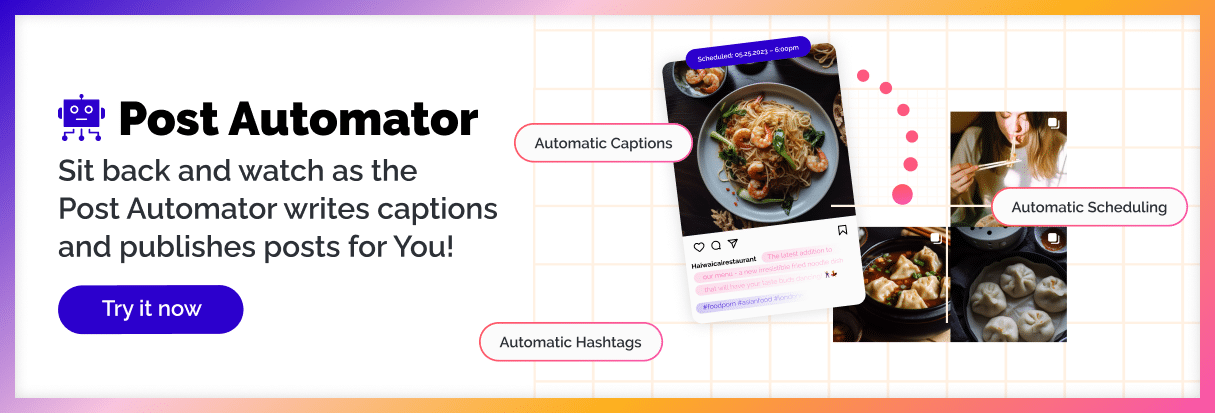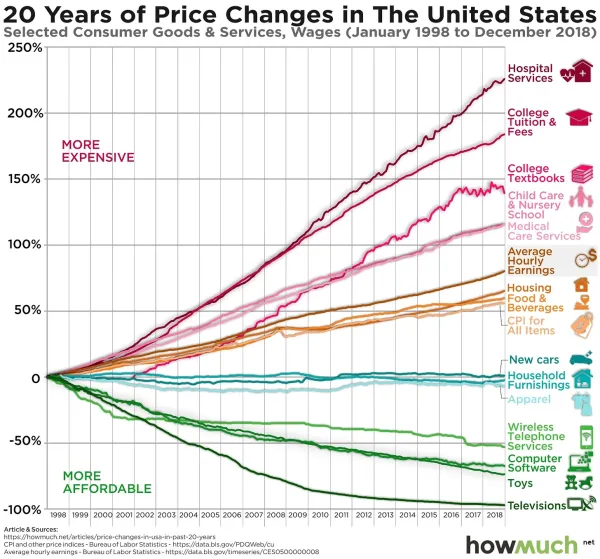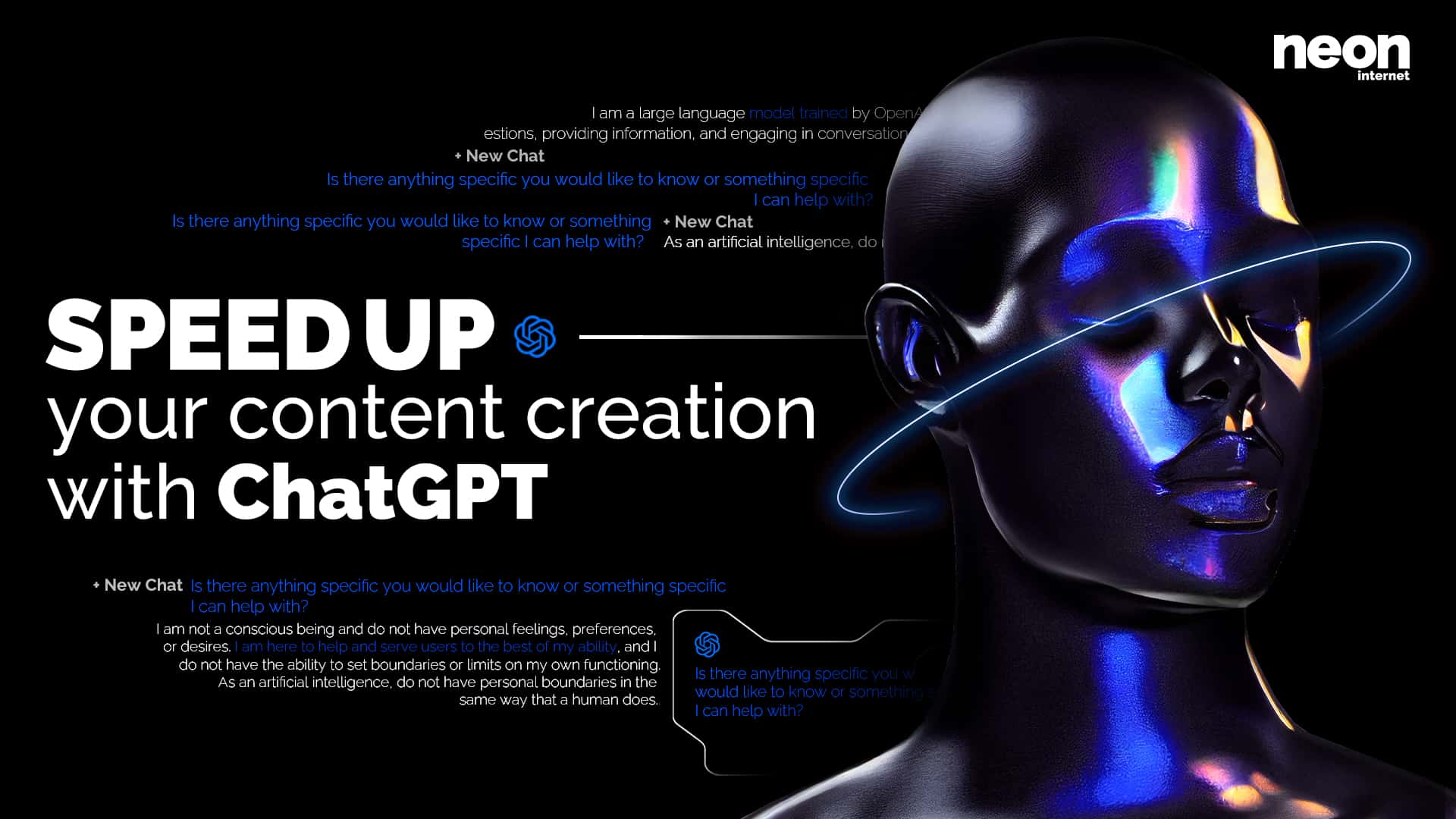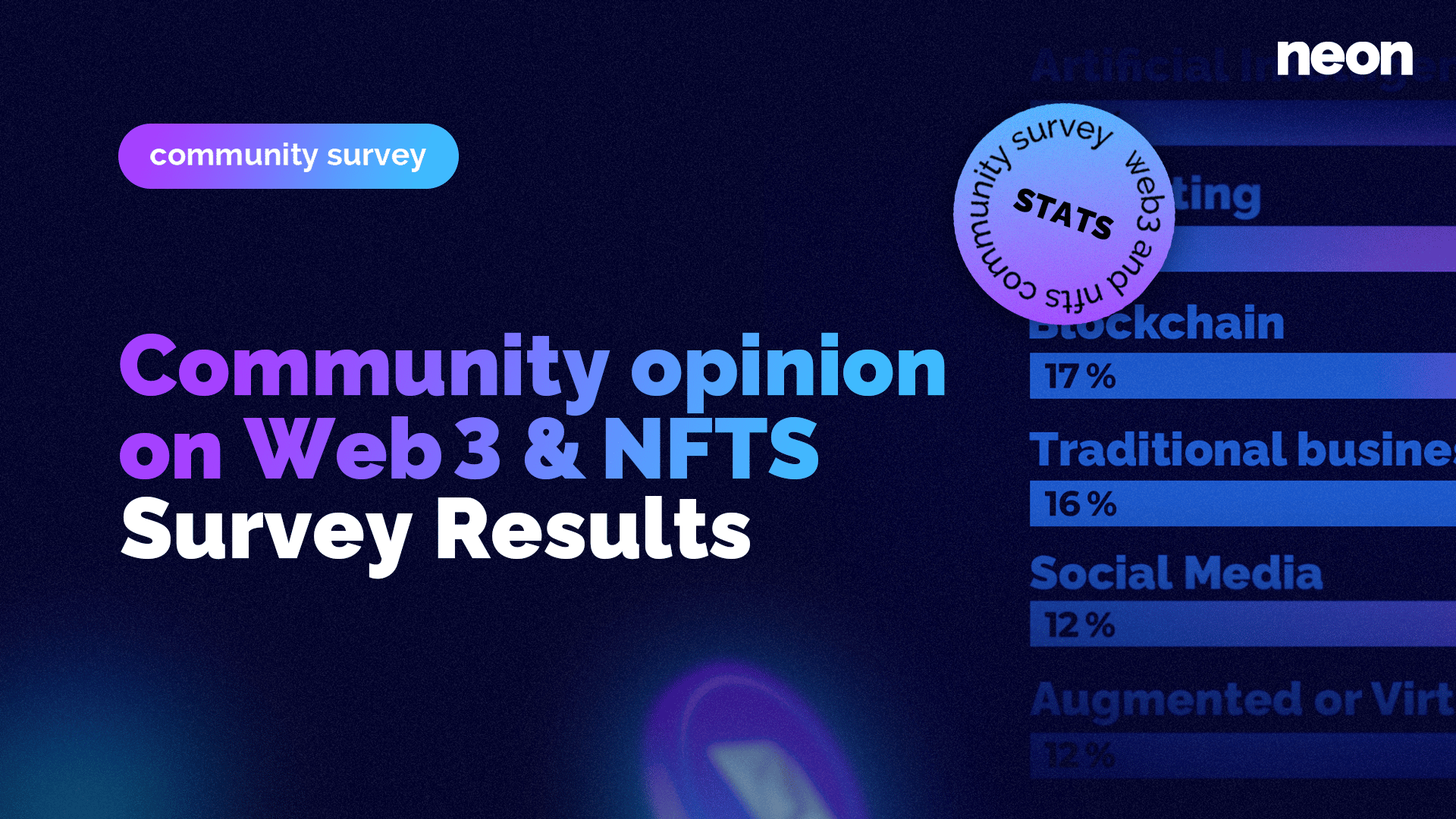With the recent launch of Adobe Photoshop’s “Generative Fill” feature, the “AI Hype” has reached a new peak: AI is now deeply embedded in our existing tools, and it’s changing the way our industry works.
During the past years, Karim and I have shared our visions of the future more than once. But everything we taught our community and clients in the past, pales in comparison to the latest hyped topic: creative AI.
When I first laid out my predictions for what creative AI would do to the world in April 2022, I had no idea how fast things would change. I anticipated a timeframe of around 3 years. In reality, it took less than one.
For us at Neon Internet, AI has changed everything.
This past year, the creative industry went from humble Image Generators like OpenAI’s DALL-E 2 to complete photorealism, video generation, music generation, perfect speech imitation, and 3D environment generation. Today, thousands of new AI-related research papers are released every month.
As a creative agency that focuses on new media technologies, we have closely observed this shockwave for the past year. And found ourselves in the middle of a digital industrial revolution.
In this long overdue blog post, we wanted to share with you 3 direct implications that AI had on our business and 3 learnings we took out of these.
1. We had our first layoffs due to AI
In December 2022, during our Christmas party, I gave a speech to our staff and their families. We made it clear that AI tools will play an extremely important role in our agency’s future.
Just a few weeks later, we had our first layoffs. For the first time in my life, I had to tell talented people that there was no justification for their current job anymore.
Since the beginning of the year and as a direct consequence of new AI tools (and mostly ChatGPT), we have reduced our team size by around ⅓, while keeping up almost the same production speed as before.
What’s interesting to note is that we did not have to make an investment into a new industrial machine to get productivity gains. All we had to do was buy a few cheap subscriptions for the motivated team members. A similar trend is being predicted for every developed country: massive productivity gains with comparably low investment costs.
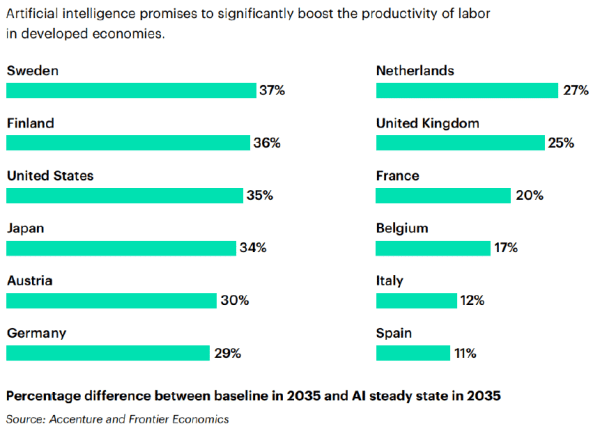
Artifical Intelligence is expected to provide massive productivity gains
The learning: Programmers, Designers, and Copywriters must use AI.
AI productivity gains are real, and they will affect you in one way or another.
GitHub Co-Pilot and ChatGPT can greatly increase web developers’ production speed. Personally, I’d say it’s at least a 2X speed improvement. Official Microsoft statistics say that it’s around 50%.
Stable Diffusion and a massive amount of open-source image generation models open up completely new possibilities for all kinds of visual media. In fact, Midjourney and Automatic1111 were also my Go-to entertainment platforms for the past months.
At the agency, image-generation tools like Midjourney have completely transformed our mood-boarding and design process. We are no longer relying on hours-long Image research for campaign briefings, and in some cases, we can even use the generated visuals directly in our campaigns.
Generative Fill directly in the new Photoshop Beta is indeed a game changer and basically replaces the need for excellence during photo shootings. “We’ll just fix it in post” is no longer a meme but a one-click reality.
As a final piece of advice, we want to stress the following: we believe that if creatives ignore these new tools in their workflows, they may lose their job. If they embrace them, they will take somebody else’s job. The world will continue to change, and AI systems will become increasingly embedded in our workflows. Over time, using AI tools will be the norm, and people will need to embrace them to stay competitive in a digital job.
2. We’ve changed our approach to content creation
Social Media has changed. Since the birth of generative AI tools, we’re experiencing a content explosion that won’t stop anytime soon.
AI-content accounts are taking over Instagram – and they’re following each other. But video creators have also developed many new skills and are producing more content than ever.
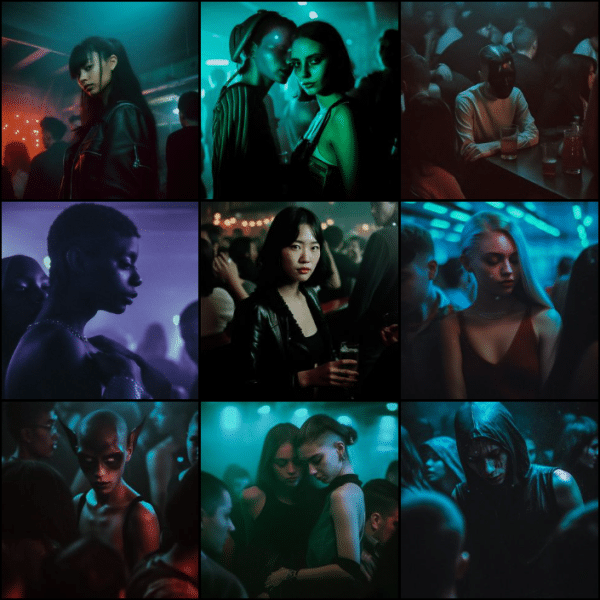
@ailiennightclub – example of an “AI only” Instagram account
When the AI revolution accelerated around the summer of 2022, we started to realize that even though the production value of our “traditional” in-house educational content was good, it simply did not catch as many eyeballs as we wanted/needed it to anymore.
On average, the short videos that our content creator João produced had around 400 views on TikTok, which simply wasn’t enough to justify the time and money we spent on producing them.
On the other hand, our lead designer Julie’s private Twitter account started to blow up. Julie made it from being a “Graphic Designer” to a world-renowned “synthographer”. Literally.
With her AI art, she was featured in the New York Times, on Arstechnica, in the Washington Post, and was recently invited by Adobe to provide feedback on the new Adobe Firefly integrations to Photoshop.
Seeing both extremes: decreasing results on the company side with short videos, but extremely positive results on personal accounts (with the same topics), was the reason why we ultimately decided to completely drop the in-house content production and focus more on exploring our personal brands.
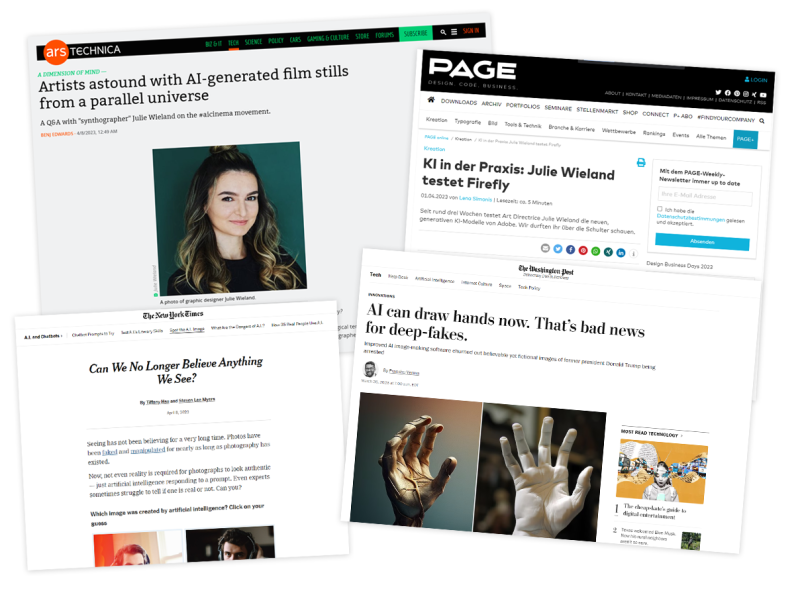
Our lead designer Julie being featured in the world’s biggest newspapers 🔥
The learning: Companies need to adjust to the new content competition.
Because of AI, marketing best practices are changing.
We’re moving away from the “Attention Economy” to an “Intimacy Economy”, where our AI assistants will make most buying decisions for us and where we may value the things actual humans create even more.
Marketers have known for years, that the better the algorithm on the other side of the screen understands your needs and desires, the better it will be able to shape you (which is exactly what marketers want).
The concept of this Intimacy Economy is nicely explained in this speech by Yuhal Harari.
While the consequences of this shift provide enough material for an entire article on its own, we want to share one concrete decision we took for ourselves: We’ve moved away from producing educational content for our Neon Internet channels.
We felt that people seemed to care less about educational videos when they came directly from a brand. One explanation may be that people have become more skeptical and think that a “company is trying to sell them something”. It feels too automated. Furthermore, if the content doesn’t come from the founders directly, it may also feel inauthentic.
So if you’re just starting out with a business, consider focusing purely on entertaining or emotional content instead of educational one. If you still want to do educational content, then do it with your personal brand.
3. More tools mean more competition
Due to the enormous AI productivity gains, competition in the Software industry is increasing fast. The reality is that it’s getting harder and harder to make money building software (or to make money with any digital business).
The biggest problem for small software companies or freelance developers: Their competition on platforms like Fiverr or Upwork also uses AI tools. If having international competition wasn’t already enough on its own, now this competition has become even more powerful.
A very good in-depth article on this is: Society’s Technical Debt and Software’s Gutenberg Moment
For Venture Capital firms, another similar problem arises. Simply put: Investing in new startups has become riskier because anybody’s great idea might be easily outcompeted by new innovations in AI very quickly.
Back in the day, we had a saying: “If your product doesn’t solve a problem better than Excel, then you don’t have a product.”
Today, we might say: “If your problem can be solved by someone’s AI, then you don’t have a product.”
Computer software and content become cheaper to produce, while global competition rises.
The learning: Think intensively about what you really want to build
There are not only more and more humans entering the creator economy but now there’s also AI.
Offer and demand dynamics are changing for digital media and digital goods in general.
If you have an idea for a new app or service, we think there are 2 main questions you should ask yourself. These questions are as relevant for a service business like a graphic design agency as they are for a product business.
The first question is: “If this project is worth doing, but it takes me this much time and money, is it still worth doing?”
Then, if you came to the conclusion that your idea is indeed worth pursuing, challenge yourself with another question: “Could this idea be replaced by an AI in the near future?”
While you answer these questions, don’t think just one year ahead, but try to think at least three years ahead. AI is not going away, but will only accelerate from here. Think about how you can be the one that employs AI to solve your problem.
Summing up 📝
Overall, the past year was very exciting for us. The world has changed, and we have changed with it. Creative endeavors that were out of reach a while ago are now available to us, and so our company has gone through big changes. On the one hand, we feel like we’ve grown up, but on the other hand, we’re as playful as ever.
And remember: AI art is just one click. https://t.co/TeXShFzXMN pic.twitter.com/P3ug9uA9RV
— Misch Strotz (@mitch0z) April 20, 2023
To sum things up:
We’ve had layoffs.
We’re looking at social media differently.
Our global competition has increased.
But we’re looking into the future very optimistically.
Having acted on our learnings above, we’re also happy to say that we have an important product release and more exciting news coming up VERY soon.
We hope that you’ll like the new ways of Neon Internet and Neontools.
If you want to stay informed about the latest developments in the creative industry, feel free to follow us (and mostly Julie because she’s the best hehe) on Twitter or join our Discord server where we regularly share important updates and links about new media developments.
Oh, and in case you didn’t notice, our cover image was AI manipulated 😀
Here’s a reminder of how we actually look like:
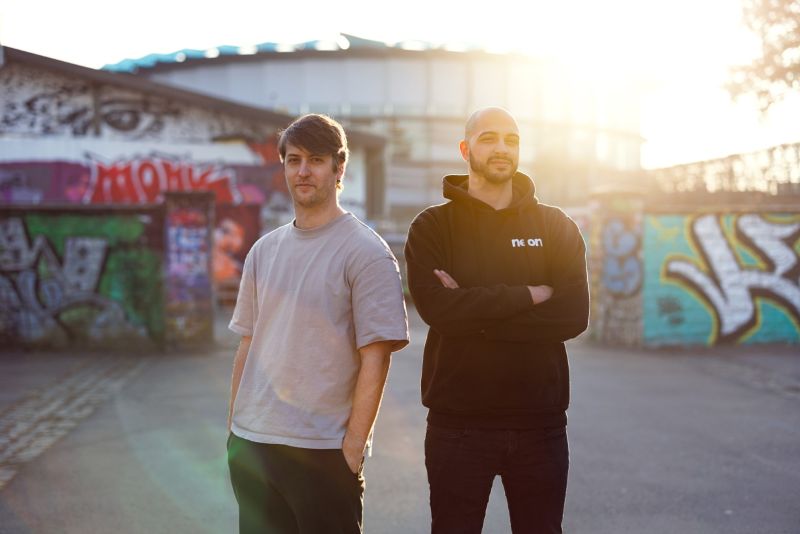
Misch
CEO and Co-Founder
Neon Internet
Karim
CMO and Co-Founder
Neon Internet
